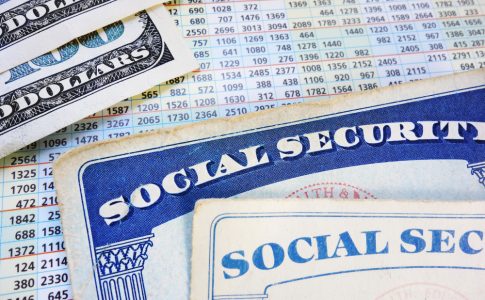 Because solo parents are often heads of single-income households, identity theft can wreak more havoc than on dual-income households where a partner can cover the family while financial security is recovered. Moreover, solo parents with ex-spouses need to be extra vigilant since exes have had access to personal information.
Because solo parents are often heads of single-income households, identity theft can wreak more havoc than on dual-income households where a partner can cover the family while financial security is recovered. Moreover, solo parents with ex-spouses need to be extra vigilant since exes have had access to personal information.
Take back your identity, get secure in your securities, read on, Solo Nation!
Do’s
- Get your credit report to see all accounts listed in your name. Note those that are individual, joint or authorized user accounts. You are responsible for paying off any debt on joint accounts, so be sure to close all joint accounts and transfer remaining debt into single-user accounts, dividing existing marital debt equally.
- Remove each other as authorized users from existing individual accounts.
- Protect your Social Security number like it’s gold. With this number, a thief can get just about anything in your name—passport, driver’s license, apartment, credit cards, etc.
- Check your bills and bank statements as soon as they arrive, and check your bank balances at least every other day online. The earlier you can detect an error or theft, the quicker you can repair the damage. Call the lender if bills do not arrive on time.
- File your tax returns as soon as possible. This gives thieves less time to file using your name and social security number.
- Ask questions. Some stores request your telephone number just for their “mailing lists” while others want your driver’s license number for no apparent reason. If a request for personal information seems inappropriate for the type of transaction you are making, ask why they need the information and how it will be used and protected. You can always refuse.
- Install firewall, virus and spyware protection software on your home computer. Only download free software from sources you know and trust. If you use Internet Explorer, set the browser security to at least “medium.”
- Make certain your personal financial information is kept out of view and is secure at home. Don’t leave it lying around for roommates, friends of children, housekeepers, or repair people to see.
- When you sign up for a new credit card, keep an eye on the calendar to make sure you receive it within an appropriate period of time. If not, call the company and ask if the card was sent, or if anyone has filed a change of address notice. And when you order new checks, ask if you can pick them up at your bank rather than having them delivered to your home address.
- Send for your credit report at least twice a year and correct any errors immediately.
- To avoid any chance of someone raiding your garbage cans to look for identifying information about you, (and there are people out there who do this for a living) invest in a shredder.
Don’ts:
- Never leave outgoing bills in your mailbox for the mail carrier to pick up. It’s very easy for someone to drive by, notice the red flag, and steal your payment along with your credit card number or other identifying information. Go the extra mile and put all mail in an official mailbox or stop in at the post office– or better yet, set up online bill-pay with your bank.
- Never sell or dispose of a computer without asking a professional to erase the hard drive. Information is stored in all sorts of hidden places on computers, and without proper, professional cleaning, you could leave yourself vulnerable to identity or credit card theft.
- Don’t carry credit cards you rarely use, your Social Security card, birth certificate, green card, or passport with you. Instead, keep those items locked away in a safe at home, and only take them out when you need them.
- Don’t say your credit card number out loud on the phone if you are in a public place. Also be cautious when entering your PIN number at an ATM. “Shoulder Surfers” are out there watching.
- Unless you frequently take advantage of zero interest credit card offers, get off the list for pre-approved offers. It is very easy for a thief to steal the envelope, sign you up for the card, and give a new address. Simply call 1-888-5OPTOUT (888-567-8688) or go to OptOutPrescreen.com to have your name removed from credit bureau marketing lists.
- Don’t type in your credit card or social security number on the Internet unless it is on an encrypted site. The Internet address bar will show “https” and a padlock symbol at the bottom of the browser window. This applies to mentioning a credit card or bank account number in an e-mail as well.
- Never give money to anyone who comes to your door, even charities. Ask them to leave some literature and send them a check after you have fully examined their brochures and verified them with the Better Business Bureau. When it comes to tax time, you’ll have a good record in your checkbook.
- Criminals “phish” for victims by calling or e-mailing to “verify” your account number or password. Official businesses do not obtain information this way. Never, ever open an email from a company asking you to verify your account information.
- Don’t open any attachments to an e-mail from an unfamiliar person or business. Once a hacker has access to your system they can do all sorts of damage.
- Whenever possible, don’t use a debit card when making purchases on the Internet or over the phone. Thieves will have complete access to your checking account with this number.
Identity theft has been rampant of late, and security experts are struggling to keep up. We have to be vigilant and consistent in protecting ourselves and our families from those who may do us harm.






